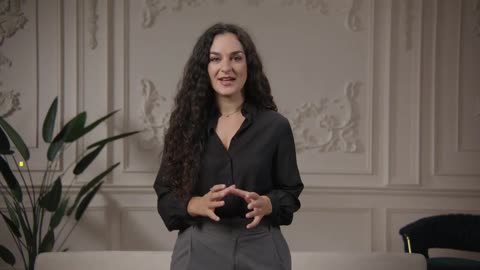Here are the five finance questions to allow you to be on the right track of financial freedom:
Question 1: What are my financial goals
You must clearly determine your short-term, medium-term, and long-term goals. Identify the short-term goals you want to achieve in the next 1-3 years, such as building an emergency fund, saving for a vacation, or paying off small debts. Medium-term goals are for the next 3-5 years, including buying a car, funding education, or saving for a home down payment. Long-term goals are for 5+ years or more and are targeted towards retirement and having an adequate amount in the absence of the primary source of income. You must save to achieve these goals.
Question 2: What is my current financial situation
You must know everything about your current financial situation. Analyse your income sources (salary, business) and monthly expenses (fixed and variable). This will help you understand your cash inflow and outflow and identify areas to cut costs. Calculate your assets (savings, investments, property) minus liabilities (debts, loans) to determine your net worth. This provides a clear picture of your overall financial health. If you feel that your net worth is lower than it should be, try to save more and reduce your liabilities.
Question 3: How much debt do I have
Debt can be a good thing to avoid covering high expenses from your savings or to have high liquidity. However, having debt higher than what you repay can negatively affect your financial health. List all your debts, including credit cards, loans, and mortgages, along with their interest rates and monthly payments, and review how much you are spending on repaying them. Consider taking a debt consolidation loan to pay off multiple loans through a single loan and avoid further debt.
Question 4: Am I investing a portion of my savings
Piling cash in the savings account is never a good option as savings accounts provide one of the lowest interest rates among every financial instrument. It is vital that you invest a major portion of your savings into various market-linked and fixed-income investment instruments. Although market-linked instruments such as stocks come with high associated risk, they offer high return potential. On the other hand, fixed-income instruments are low-risk and offer steady income.
Question 5: Am I saving enough for emergencies and retirement
You may invest or save as much as you can, but the target amount should be based on determining your financial goals and adjusting for inflation. You must keep a portion of your savings as an emergency fund, which you can access quickly in case of financial emergencies without having to take credit. The remaining savings amount must be invested to build wealth for retirement. Consider the types of investments that align with your risk tolerance and time horizon for retirement. Diversifying your portfolio can help maximise returns and minimise risks.









 Personal Loan
Personal Loan Check Eligibility
Check Eligibility Salaried Personal Loan
Salaried Personal Loan EMI Calculator
EMI Calculator Account Aggregator
Account Aggregator Credit Pulse Report
Credit Pulse Report
 Deals starting @99
Deals starting @99 Min. 50% off
Min. 50% off
 Bajaj Pay
Bajaj Pay Wallet to Bank
Wallet to Bank
 Easy EMI Loan
Easy EMI Loan Savings Offer
Savings Offer Smartphones
Smartphones Led TVs
Led TVs Washing Machines
Washing Machines Laptops
Laptops Refrigerators
Refrigerators Air Conditioner
Air Conditioner Air Coolers
Air Coolers
 Loan Against Shares
Loan Against Shares Loan Against Mutual Funds
Loan Against Mutual Funds Loan Against Insurance Policy
Loan Against Insurance Policy ESOP Financing
ESOP Financing Easy EMI Loan
Easy EMI Loan Two-wheeler Loan
Two-wheeler Loan Loan for Lawyer
Loan for Lawyer Industrial Equipment Finance
Industrial Equipment Finance Industrial Equipment Balance Transfer
Industrial Equipment Balance Transfer Industrial Equipment Refinance
Industrial Equipment Refinance Personal Loan Branch Locator
Personal Loan Branch Locator Used Tractor Loan
Used Tractor Loan Loan Against Tractor
Loan Against Tractor Tractor Loan Balance Transfer
Tractor Loan Balance Transfer Flexi
Flexi View All
View All
 Two-wheeler Loan
Two-wheeler Loan Bike
Bike Commuter Bike
Commuter Bike Sports Bike
Sports Bike Tourer Bike
Tourer Bike Cruiser Bike
Cruiser Bike Adventure Bike
Adventure Bike Scooter
Scooter Electric Vehicle
Electric Vehicle Best Sellers
Best Sellers Popular Brands
Popular Brands

 Trading Account
Trading Account Open Demat Account
Open Demat Account Margin Trading Financing
Margin Trading Financing Share Market
Share Market Invest in IPO
Invest in IPO All stocks
All stocks Top gainers
Top gainers Top losers
Top losers 52 week high
52 week high 52 week low
52 week low Loan against shares
Loan against shares
 Home Loan
Home Loan Transfer your existing Home loan
Transfer your existing Home loan Loan against Property
Loan against Property Home Loan for Salaried
Home Loan for Salaried Home loan for self employed
Home loan for self employed Loan Against Property Balance Transfer
Loan Against Property Balance Transfer Home Loan EMI Calculator
Home Loan EMI Calculator Home Loan eligibility calculator
Home Loan eligibility calculator Home Loan balance transfer
Home Loan balance transfer View All
View All
 Term Life Insurance
Term Life Insurance ULIP Plan
ULIP Plan Savings Plan
Savings Plan Family Insurance
Family Insurance Senior Citizen Health Insurance
Senior Citizen Health Insurance Critical Illness Insurance
Critical Illness Insurance Child Health Insurance
Child Health Insurance Pregnancy and Maternity Health Insurance
Pregnancy and Maternity Health Insurance Individual Health Insurance
Individual Health Insurance Low Income Health Insurance
Low Income Health Insurance Student Health Insurance
Student Health Insurance Group Health Insurance
Group Health Insurance Retirement Plans
Retirement Plans Child Plans
Child Plans Investment Plans
Investment Plans
 Business Loan
Business Loan Secured Business Loan
Secured Business Loan Loan against property
Loan against property Loans against property balance transfer
Loans against property balance transfer Loan against shares
Loan against shares Home Loan
Home Loan Loans against mutual funds
Loans against mutual funds Loan against bonds
Loan against bonds Loan against insurance policy
Loan against insurance policy
 Apply for Gold Loan
Apply for Gold Loan Transfer your Gold Loan with Us
Transfer your Gold Loan with Us Gold Loan Branch Locator
Gold Loan Branch Locator
 ULIP Plan
ULIP Plan Savings Plan
Savings Plan Retirement Plans
Retirement Plans Child Plans
Child Plans Free Demat Account
Free Demat Account Invest in Stocks
Invest in Stocks Invest in IPO
Invest in IPO Margin Trading Facility
Margin Trading Facility Fixed Deposit Branch Locator
Fixed Deposit Branch Locator
 Check your Credit Score
Check your Credit Score
 New Car Loan
New Car Loan Used Car Loan
Used Car Loan Loan Against Car
Loan Against Car Car Loan Balance Transfer and Top-up
Car Loan Balance Transfer and Top-up My Garage
My Garage
 Get Bajaj Prime
Get Bajaj Prime
 Mobiles on EMI
Mobiles on EMI Electronics on EMI Offer
Electronics on EMI Offer  Iphone on EMI
Iphone on EMI LED TV on EMI
LED TV on EMI Refrigerator on EMI
Refrigerator on EMI Laptop on EMI
Laptop on EMI Kitchen appliances on EMI
Kitchen appliances on EMI Washing machines
Washing machines
 Personal Loan EMI Calculator
Personal Loan EMI Calculator Personal Loan Eligibility Calculator
Personal Loan Eligibility Calculator Home Loan EMI Calculator
Home Loan EMI Calculator Home Loan Eligibility Calculator
Home Loan Eligibility Calculator Good & Service Tax (GST) Calculator
Good & Service Tax (GST) Calculator Flexi Day Wise Interest Calculator
Flexi Day Wise Interest Calculator Flexi Transaction Calculator
Flexi Transaction Calculator Secured Business Loan Eligibility Calculator
Secured Business Loan Eligibility Calculator Fixed Deposits Interest Calculator
Fixed Deposits Interest Calculator Two wheeler Loan EMI Calculator
Two wheeler Loan EMI Calculator New Car Loan EMI Calculator
New Car Loan EMI Calculator Used Car Loan EMI Calculator
Used Car Loan EMI Calculator All Calculator
All Calculator Used Tractor Loan EMI Calculator
Used Tractor Loan EMI Calculator
 Hot Deals
Hot Deals Clearance Sale
Clearance Sale Kitchen Appliances
Kitchen Appliances Tyres
Tyres Camera & Accessories
Camera & Accessories Mattresses
Mattresses Furniture
Furniture Watches
Watches Music & Audio
Music & Audio Cycles
Cycles Mixer & Grinder
Mixer & Grinder Luggage & Travel
Luggage & Travel Fitness Equipment
Fitness Equipment Fans
Fans
 Personal Loan for Doctors
Personal Loan for Doctors Business loan for Doctors
Business loan for Doctors Home Loan
Home Loan Secured Business Loan
Secured Business Loan Loan against property
Loan against property Secured Business Loan Balance Transfer
Secured Business Loan Balance Transfer Loan against share
Loan against share Gold Loan
Gold Loan Medical Equipment Finance
Medical Equipment Finance
 Smart Hub
Smart Hub ITR Service
ITR Service Digi Sarkar
Digi Sarkar
 Savings Offer
Savings Offer Easy EMI
Easy EMI Offer World
Offer World 1 EMI OFF
1 EMI OFF New Launches
New Launches Zero Down Payment
Zero Down Payment Clearance Sale
Clearance Sale Bajaj Mall Sale
Bajaj Mall Sale
 Mobiles under ₹20,000
Mobiles under ₹20,000 Mobiles under ₹25,000
Mobiles under ₹25,000 Mobiles under ₹30,000
Mobiles under ₹30,000 Mobiles under ₹35,000
Mobiles under ₹35,000 Mobiles under ₹40,000
Mobiles under ₹40,000 Mobiles under ₹50,000
Mobiles under ₹50,000
 Articles
Articles
 Overdue Payments
Overdue Payments Other Payments
Other Payments
 Document Center
Document Center Bank details & Documents
Bank details & Documents Tax Invoice Certificate
Tax Invoice Certificate
 Do Not Call Service
Do Not Call Service
 Hamara Mall Orders
Hamara Mall Orders

 Fixed Deposit (IFA) Partner
Fixed Deposit (IFA) Partner Loan (DSA) Partner
Loan (DSA) Partner Debt Management Partner
Debt Management Partner EMI Network Partner
EMI Network Partner Became a Merchant
Became a Merchant Partner Sign-in
Partner Sign-in
 Trade directly with your Demat A/c
Trade directly with your Demat A/c ITR
ITR My Garage
My Garage
 Live Videos - Beta
Live Videos - Beta
 Savings Offer
Savings Offer Smartphones
Smartphones LED TVs
LED TVs Washing Machines
Washing Machines Laptops
Laptops Refrigerators
Refrigerators Air Conditioners
Air Conditioners Air Coolers
Air Coolers Water Purifiers
Water Purifiers Tablets
Tablets Kitchen Appliances
Kitchen Appliances Mattresses
Mattresses Furniture
Furniture Music and Audio
Music and Audio Cameras & Accessories
Cameras & Accessories Cycle
Cycle Watches
Watches Tyres
Tyres Luggage & Travel
Luggage & Travel Fitness Equipment
Fitness Equipment Tractor
Tractor Easy EMI Loan
Easy EMI Loan
 vivo Mobiles
vivo Mobiles OPPO Mobiles
OPPO Mobiles Xiaomi Mobiles
Xiaomi Mobiles Sony LED TVs
Sony LED TVs Samsung LED TVs
Samsung LED TVs LG LED TVs
LG LED TVs Haier LED TVs
Haier LED TVs Godrej Refrigerators
Godrej Refrigerators Voltas Washing Machines
Voltas Washing Machines
 New Tractor Loan
New Tractor Loan Used Tractor Loan
Used Tractor Loan Loan Against Tractor
Loan Against Tractor Tractor Loan Balance Transfer
Tractor Loan Balance Transfer
 New Car Loan
New Car Loan New Cars Under ₹10 Lakh
New Cars Under ₹10 Lakh New Cars – ₹10–₹15 Lakh
New Cars – ₹10–₹15 Lakh New Cars – ₹15–₹20 Lakh
New Cars – ₹15–₹20 Lakh New Cars – ₹20–₹25 Lakh
New Cars – ₹20–₹25 Lakh New Car Brands
New Car Brands Petrol – New Cars
Petrol – New Cars Diesel – New Cars
Diesel – New Cars Electric – New Cars
Electric – New Cars CNG – New Cars
CNG – New Cars Hybrid – New Cars
Hybrid – New Cars




















